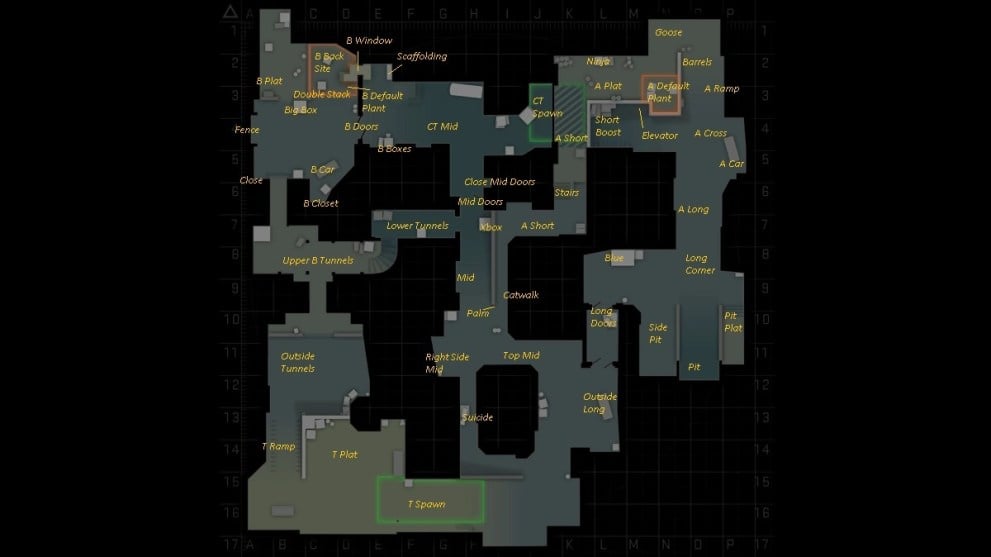CS:GO is highly competitive, to the point where committing callouts to memory are important on every map, like Dust 2. Being a lone wolf in CS:GO is a recipe for disaster, not to mention causing a great deal of grief if you spend most of the match dead. It’s all about pulling your weight, and that means understanding callouts on every map. Here’s all Dust 2 callous in CS:GO, what they are, and how to make one.
All Callouts on Dust 2 in CS:GO

Using the map above, get yourself acquainted with the general lingo of the callouts in CS:GO. Playing the game, or watching streams and videos, and hearing them in action really help. It won’t take long for you to know all Dust 2 callouts like the back of your hand. Trust yourself and listen to your teammates!
What a Callout is and How To Make One
A “callout” is a short description for a specific and general locations on the map. These describe enemy location, movement, engagement (like shots fired), including your own.
Let’s say you’ve spotted two enemies in the Lower Tunnels (use the map to visualize it). Tell your allies: “2 spotted Lower Tunnels.” That’s it—that’s all there is to it.
Now, there will be instances wherein enemies are on the move. Using the above as an example again, let’s say the enemy is moving into Upper B Tunnels. A better callout would be “2 spotted entering Upper B Tunnels,” allowing nearby allies to potentially get the drop.
There you have it: all Dust 2 callsouts in CS:GO, what it is, and how to make one. For more guides, features, and questions on first-person shooters, check out the 10 best pro female Valorant players. Given the content of CS:GO, considering diving into the 10 best sniper video games, too.
